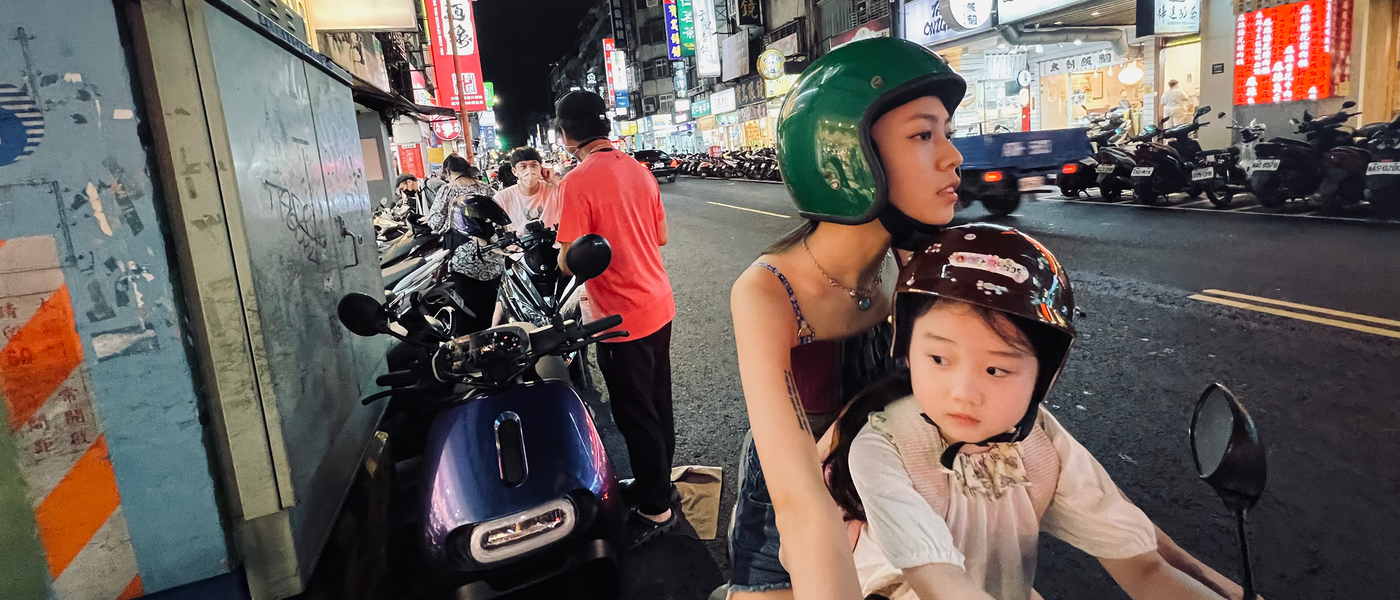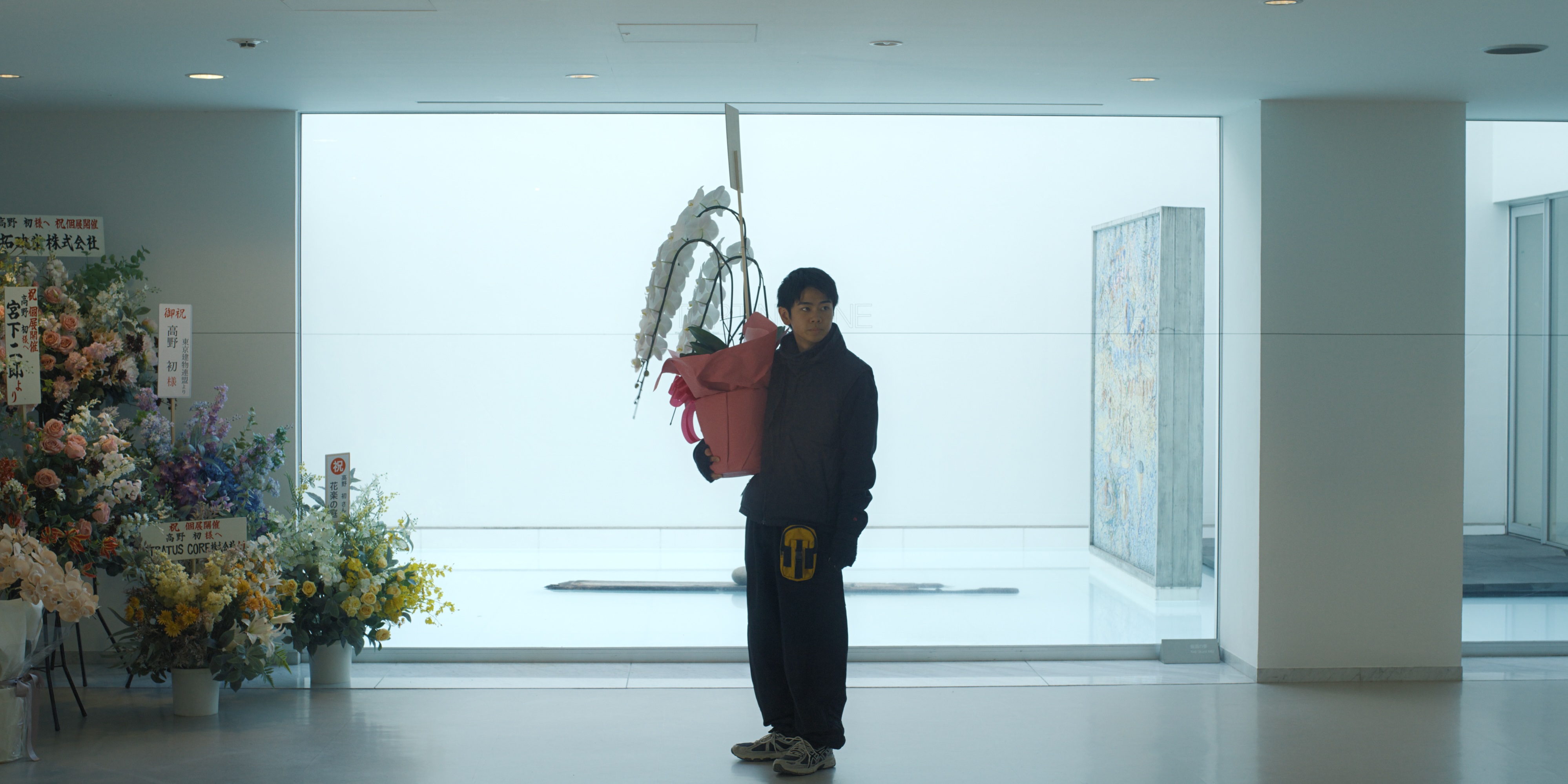Alive and brimming where most neorealist festival movies prefer the detached slow crawl that strains toward a vision of real life, Shih-Ching Tsou’s solo directing debut “Left-Handed Girl” is born from a collaboration with a longtime friend, and a filmmaker familiar to most people reading this.
Sean Baker co-writes (with Tsou), produces, and edits the Taiwanese filmmaker’s Cannes Critics’ Week premiere after Tsou, for decades, produced Baker outings like “Tangerine,” “Red Rocket,” and “The Florida Project.” A kaleidoscopic, if eventually melodramatic, portrait of a Taiwanese family returning to Taipei to set up a night market noodle shop, “Left-Handed Girl” isn’t Tsou’s first at-bat as director: She co-helmed Baker’s 2004 indie name-maker “Take Out,” about a Chinese food delivery worker hustling in New York City.
Tsou applies the restless energy of her longtime collaborator’s beloved social-realist works — portraits of men and women working against their class station to find a better living — to “Left-Handed Girl,” which rests on the skillfully directed performance of a five-year-old girl (Nina Ye, a small child who effervescently commands the camera) in the lead. The movie, even when tracking the older daughter I-Ann (Shih-Yuan Ma) and mother Shu-Fen (Janel Tasi) who make up this heartwarming family trio, is always inside the tiny girls’ eyes and ears, looking at the world from a place of wonderment and confusion as she tries to make sense of an adult world. The girl’s grasp, though, on Mandarin and years spent living with adults and fewer children makes her already almost too mature for her own good.
“Left-Handed Girl” threatens to crash-land with a melodramatic pile-up of unearthed family secrets at a birthday banquet for the girl’s grandmother, every generation engaging in histrionics that bring to life past resentments preferred to be left by all outside of Taipei and in the past. Until then, this lively feature, lensed by Ko-Chin Chen and Tzu-Hao Kao with a high-contrast, bright-lights urgency that submerges you in Taipei city life day and night, hits on a more understated, universal nerve of class conflict and the ancient traditions (including, of course, the customary misogyny) becoming less fashionable in our modern, addled times.
Lens flares and twinkling glares, rooms and spaces flooded with light and color, make “Left-Handed Girl” a visually dazzling experience, as we’re swept off via moped into the streaking sights and sounds of Taipei. I-Jing (Nina Ye) arrives with her mother and older sister from rural Taiwan, back in the hometown she never knew as an even smaller child, possible economic opportunity awaiting the fractured family in the capital city. They reconnect with Shu-Fen’s mother, the grandma of I-ann and I-Jing, who hasn’t seen any of them for years. In Taiwanese-traditional matriarchal fashion, the grandmother starts fretting over twenty-something I-Ann’s (the filmmakers found Ma on Instagram) looser way of dress.

I-Jing and I-Ann’s mother Shu-Fen (Tsai) is in Taipei to open up a noodle shop on rented dime — and is almost immediately behind on the payments. I-Ann, who once dreamed of university life but is now shackled to being a surrogate mother to her younger sister, is willful and rebellious. She takes up work at a betel nut stand in the same night market — betel nut being a stimulant, classifiable drug in Taiwan — that stand itself fronting as a tobacco shop, engaging in listless sexual encounters with its frontman. There are, inevitably and perhaps predictably, dire consequences here, as signaled when I-Ann has to run to the street to puke during her shift.
Unexpected pregnancy is a classic melodramatic trope in any movie, one that never seems to feel less shoved in, though just hold on, because the “Left-Handed Girl” script makes I-Ann’s curveball an integral part of its story. Meanwhile, I-Jing is left to her own devices, roaming the night market and the city, especially while her mother is busy raising (and barely) the medical and funeral costs for I-Jing’s father, suddenly in hospital and unable to speak or move. Again, it’s a lot of melodrama thrust in at once, as if this movie couldn’t just let their characters move naturally through the story world, instead throwing plot hijinks at them to make their return to Taipei all the more fraught with disaster. As if showing face in a city you used to live in, and having to start up a business there on day one, weren’t hard enough.
“Left-Handed Girl” routinely returns to the cultural idea of saving and/or losing face, how so much of the Taiwanese culture here is about putting on a front where our deepest traumas and disasters are buried under the floor ever beneath us. But there’s little room for the past to hide, as the apartment I-Jing and her sister and mother move into, as I-Ann observes, is “smaller than the photo.” No one has any personal space, so how would the ghosts of the past have anywhere else to hide, either?
Also making I-Jing’s integration into Taipei life a challenge is her left-handedness, amid a cultural bias that prefers the right hand as much as other arbitrary decorum. Her surly grandfather warns that the left hand is “the devil’s hand,” which leads I-Jing to suspect she might be possessed by evil itself when that very left hand leads to a most unfortunate slapstick incident involving her adorable pet meerkat, perhaps her only friend in this lonely world. That very left hand also takes up casual petty shoplifting, and if you were ever a small child who casually purloined a trinket or two from a gift shop, you’ll understand the frustrations Tsou and Baker mine from her bemused sudden life of petty crime.
If only “Left-Handed Girl” trusted its small-scale, intrinsic human dramas enough to avoid the film’s wildly over-the-top conclusion at a birthday banquet celebrating I-Jing’s grandmother. Screeching and yelling, jilted lovers, and generational disappointment flood into a finale as theatrical as a Broadway stage play despite affecting performances, wrapping up too rashly to consider how all of what just went down is about to deeply traumatize the young I-Jing for life.
As much as “Left-Handed Girl” is about the past flashflooding into the present, even while those the past keeps its hook in try to make a new life, the film is less about the future and what’s next for I-Jing and her family. Tsou and Baker open a fresh window that’s immediate, as cluttered as it is by superimposed panes of the before, onto the now of this core group. But the film does leave them on better ground to stand on than they started, as the most hope-filled of classic melodramas do.
What’s culturally touched on here will be recognizable to Taiwanese audiences, how the forward motion of daily lives is tamped down by expectations that are ancient in scope. Regardless of some of the screenplay hiccups and deus ex machina plopped from the sky, “Left-Handed Girl” still announces Tsou as a confident directorial talent with a rare exuberance: It feels more like a third or fourth film, but that’s also because it basically is, Tsou having not just shadowed Baker over the years, but having been directly immersed and embedded in the process on his directorial films. The imprimatur of Baker, a lifelong supporter of rising storytellers and people on the margins, will draw audiences to this touching film, but they’ll walk away with the lasting impression of Tsou’s own singular perspective — one infused with color and furiously energetic detail — instead.
Grade: B
“Left-Handed Girl” premiered in the 2025 Cannes Critics’ Week. It is currently seeking U.S. distribution. Le Pacte is handling sales.



